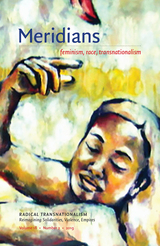
Candelario draws on her participant observation in a Dominican beauty shop in Washington Heights, a New York City neighborhood with the oldest and largest Dominican community outside the Republic, and on interviews with Dominicans in New York City, Washington, D.C., and Santo Domingo. She also analyzes museum archives and displays in the Museo del Hombre Dominicano and the Smithsonian Institution as well as nineteenth- and early-twentieth-century European and American travel narratives.

Contributors. Elisabeth Armstrong, Maile Arvin, Maylei Blackwell, Laura Briggs, Ginetta E. B. Candelario, Ching-In Chen, Tara Daly, Nathan H. Dize, Deema Kaedbey, Nancy Kang, Rosamond S. King, Karen J. Leong, Brooke Lober, Neda Maghbouleh, Melissa A. Milkie, Nadine Naber, Laila Omar, Ito Peng, Robyn C. Spencer, Stanlie James, Evelyne Trouillot, Denisse D. Velázquez, Mandira Venkat, Judy Tzu-Chun Wu
READERS
Browse our collection.
PUBLISHERS
See BiblioVault's publisher services.
STUDENT SERVICES
Files for college accessibility offices.
UChicago Accessibility Resources
home | accessibility | search | about | contact us
BiblioVault ® 2001 - 2024
The University of Chicago Press









